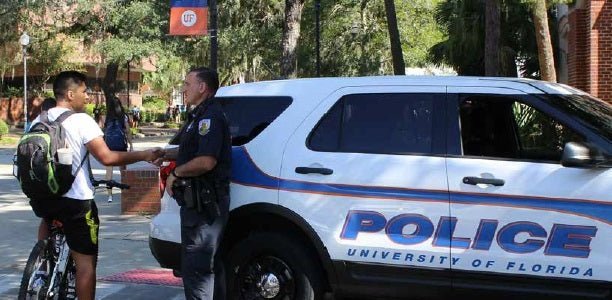
As the demand for sustainable transportation options grows, cycling has become an increasingly popular means of commuting, recreation, and exercise. Especially in a college town like Gainesville, Florida, and Alachua County. To ensure the safety and well-being of cyclists and motorists, both the city and county have implemented specific bicycling laws. In this article, we will provide an overview of the key regulations and guidelines that govern cycling at the University of Florida, Gainesville, and Alachua County.
Bicycling Infrastructure and Amenities
Gainesville and Alachua County have made substantial investments in cycling infrastructure, recognizing its importance in creating a bike-friendly environment. The city features an extensive network of bike lanes, shared-use paths, and designated bike routes, providing cyclists with safer and more convenient travel options. Cyclists can also take advantage of bicycle parking facilities, repair stations, and rentals available throughout the area.
Understanding Bicycling Laws
To ensure the safety of cyclists and promote harmonious sharing of the road, the University of Florida, Gainesville, and Alachua County enforce several key bicycling laws. It is crucial for both cyclists and motorists to be aware of these regulations to create a safe and respectful cycling culture.
-
Riding on the Roadway: Cyclists have the right to use public roads in Gainesville and Alachua County. Bicycles are considered vehicles under Florida law, and cyclists are expected to obey all traffic laws, including stopping at red lights and stop signs. Additionally, cyclists should ride as close to the right-hand curb as practicable, except when preparing to turn left, passing another vehicle, or avoiding hazards.
-
Bike Lanes and Shared-Use Paths: Gainesville and Alachua County have designated bike lanes and shared-use paths to enhance cyclist safety. Cyclists must use bike lanes when available and feasible. Motorists are not allowed to drive, park, or stop in bike lanes, ensuring the safety and convenience of cyclists. When using shared-use paths, cyclists should yield to pedestrians and signal their presence when passing.
-
Lighting and Visibility: Cyclists are required to have a white front light and a red rear reflector or light when riding at night. Additional reflectors are also recommended to enhance visibility. It is essential for cyclists to wear bright and reflective clothing to improve their visibility to motorists, especially during low-light conditions.
-
Helmets: Although Florida law does not mandate helmet use for cyclists of all ages, it is highly recommended to wear a properly fitted helmet at all times. Helmets significantly reduce the risk of head injuries in the event of a crash or accident.
-
Yielding and Passing: When approaching an intersection, cyclists must yield the right-of-way to pedestrians and other vehicles as appropriate. Cyclists should signal their intentions when turning or changing lanes to ensure the safety of themselves and others. Motorists are required to provide a safe distance of at least three feet when passing a cyclist.
The University of Florida, Gainesville, and Alachua County have demonstrated their commitment to promoting cycling as a sustainable and healthy mode of transportation. By providing an extensive network of bike lanes, shared-use paths, and other cycling amenities, the city and county have created an environment that encourages safe cycling practices. Understanding and adhering to the bicycling laws and regulations in Gainesville and Alachua County is crucial for both cyclists and motorists to ensure the well-being and coexistence of all road users. By respecting these laws, we can foster a safer and more enjoyable cycling experience for everyone.